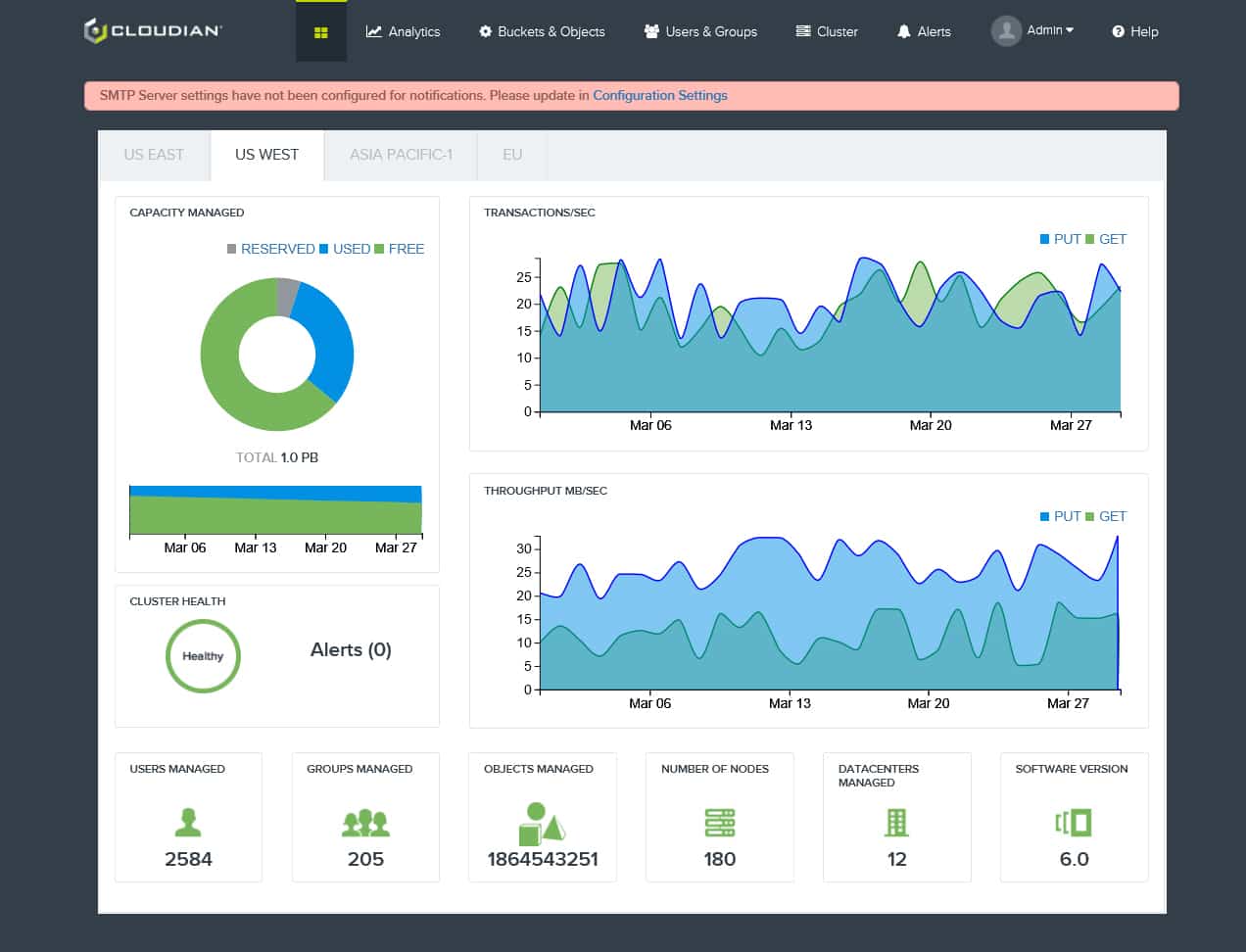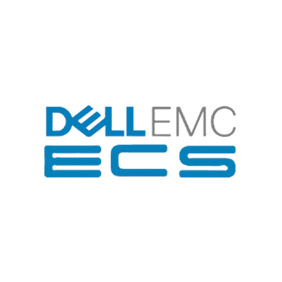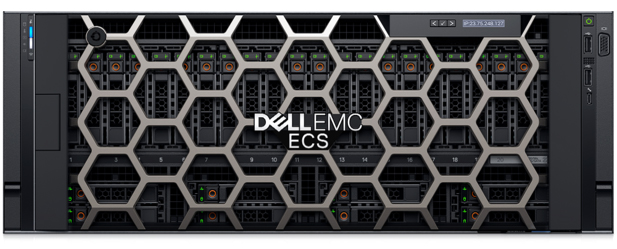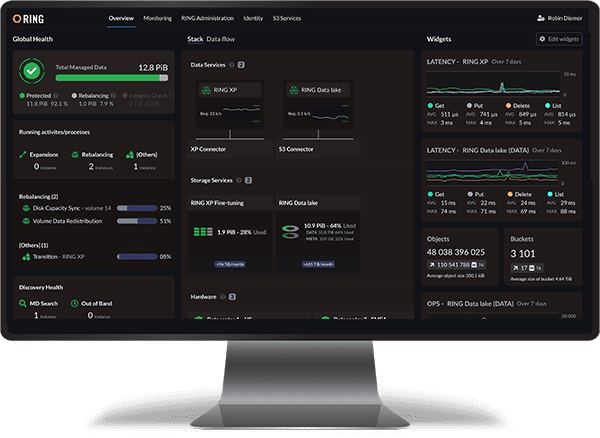Request a Demo
Join a 30 minute demo with a Cloudian expert.
AWS S3 (Simple Storage Service) is a scalable online storage solution provided by Amazon Web Services (AWS). It can store and retrieve any amount of data, using an object storage model where data is stored as objects, making it efficient for large-scale data management.
Each object consists of data, metadata, and a unique identifier, enabling easy access. Its scalability ensures that users can dynamically adjust their storage requirements according to demand. AWS S3 storage is used across industries due to its durability, availability, and cost-effectiveness.
AWS S3 provides features like data versioning, lifecycle policies, and easy integration with other AWS services for seamless workflows. It is suitable for various use cases, including static website hosting, backup, and big data analytics.
In this article:
While Amazon S3 is widely adopted for its scalability and integration with AWS services, relying solely on cloud-based storage can pose limitations for certain use cases. Organizations with strict data sovereignty requirements, such as those in healthcare, finance, or government sectors, may need to retain full control over their data and ensure compliance with local regulations.
On-premise S3-compatible solutions provide a way to meet these needs without sacrificing the flexibility of the S3 API. Latency-sensitive workloads also benefit from on-premise deployments. Applications requiring fast data access—such as machine learning pipelines, video processing, or real-time analytics—can experience performance bottlenecks when relying on remote cloud storage.
Cost control is another driving factor. While public cloud storage is cost-effective for many scenarios, unpredictable egress charges, API request fees, and long-term data growth can lead to unexpected expenses. On-premise options offer fixed-cost infrastructure with full visibility into resource usage, making it easier to manage budgets at scale.
Organizations looking to build hybrid or edge architectures often need S3-compatible storage outside of AWS. This allows them to develop applications using familiar APIs while maintaining infrastructure independence, reducing vendor lock-in and improving system resilience.
To address the challenges of providing S3-compatible storage, various tools and platforms are available to optimize cost, performance, and security. Below, we review notable solutions.

Cloudian offers a software-defined object storage platform optimized for AI, big data, and analytics workflows. Built for high-performance environments, it supports the S3 API and integrates with a wide variety of applications in data protection, data analytics, and AI tools like PyTorch, TensorFlow, and Apache Spark. Cloudian enables organizations to consolidate data into a secure, scalable, and cost-efficient storage architecture.
Key features include:


Ceph is an open source storage platform that supports object, block, and file storage within a single system, allowing organizations to consolidate diverse workloads and data types. Designed to overcome the limitations of traditional storage solutions, Ceph enables high-performance storage across on-premises, cloud, and container-native environments.
Key features include:


NetApp StorageGRID is a storage appliance that simplifies storage operations across on-premises, and hybrid cloud environments. It supports S3-compatible object storage alongside block and file services, making it suitable for consolidating diverse workloads.
Key features include:


Dell Elastic Cloud Storage (ECS) is an enterprise-grade, S3-compatible object storage platform designed for scalability and multi-cloud interoperability. It is optimized for modern workloads including analytics, AI/ML, IoT, and backup/archival, and can be deployed on-premises, in the cloud, or as a managed service.
Key features include:


Scality offers scalable, S3-compatible object storage software with a focus on unstructured data management in enterprise and service provider environments. Its Ring architecture enables high availability, petabyte-scale growth, and hybrid cloud support. Scality is suited for use cases like video surveillance, backup, archival, and big data analytics.
Key features include:

Effectively managing S3 storage requires more than just storing data—it involves strategic planning around cost, security, performance, and lifecycle management. As storage needs scale, so does the complexity of maintaining visibility and control. Addressing these challenges demands a combination of automation, policy enforcement, and integration with broader infrastructure strategies to ensure efficient and secure data management across environments.